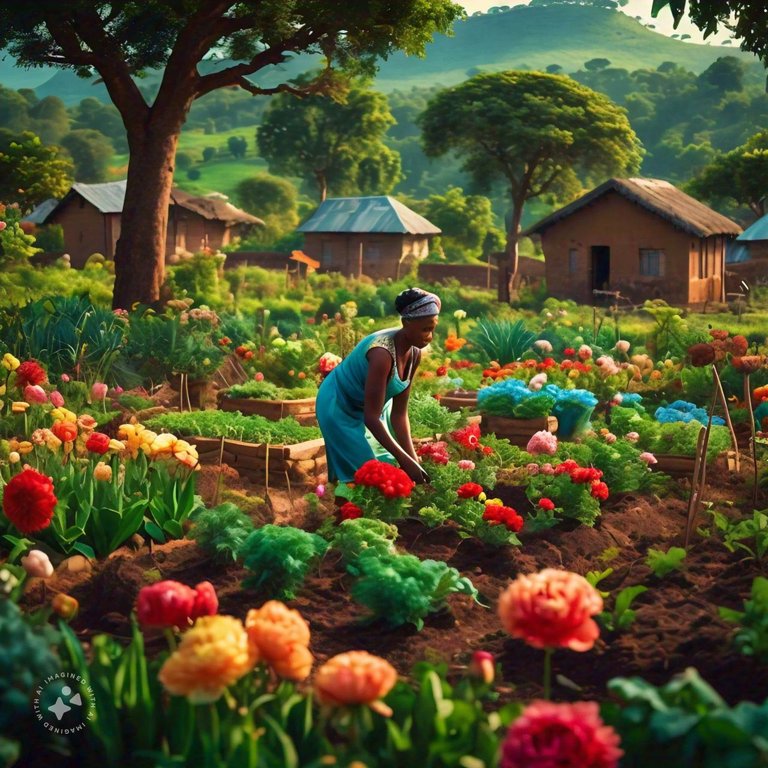
The image was generated from Meta AI
I was born in a town and lived for 23 years in about three towns before going to the city for university education.
I was born in Ayedun-Ekiti, in Ekiti State, and did my primary and junior secondary school education there before moving to Okeagbe-Akoko in Ondo State for my senior secondary education. I completed my secondary school education in my home state, Kogi. After my secondary education, I stayed four more years in Ayedun-Ekiti before gaining admission to study in the city of Jos, Plateau State.
Relatively, I can categorize the three towns I stayed earlier as rural areas. Though the basic amenities like electricity (not stable) and roads were available, the population of the dwellers and the occupation of the majority of adults, which was farming, made the towns rural.
One major amenity that wasn't available across the three towns was water. Access to potable was very difficult. I remember going to the stream in Ayedun-Ekiti after school daily to fetch water. A distance of about 2 kilometers. This was in addition to following my parents to the farm every weekend and returning home with firewood to make fire for cooking our meals. It was very stressful, I must say.
When I got to the city, I realized the kind of stress that the people in the rural areas who are low-income earners face daily. I have access to comfortability in the city. Water runs to my bathroom and kitchen, and except in Kogi State, I use more stable electricity in the city than in the rural areas.
In the city, it is very easier to nurse and achieve one's life ambitions because it is easier to meet people who are of advantage to one's aspirations randomly than in the rural areas.
However, life in the city isn't 100% better than in the rural areas. The pollution rate in the city is high. Carbon monoxide emissions are of great concern from vehicles, power generators, and motorcycles. Access to clean air becomes a problem.
Secondly, one is more susceptible to eating processed food in the city than to better access to fresh food in the rural areas. This is of greater health concern. Chemicals are used to store food, mostly for people in urban areas. Rural areas provide access to healthier food.
Another point worth mentioning is security. During my time in the village, the village was more secured than the city. Almost everyone in a village or community in the rural areas knows themselves. It is easier to nip crime in the bud than in the city, which is full of sophisticated criminals among the population. I remember how my mom warned my brother to be careful about his movements and dealings the first time he was going to Lagos. It is very easy to fall victim to scammers in the city, like Lagos and others. From my experience, the case wasn't different in Jos. Living in Jos requires a high level of vigilance.
Having mentioned the advantages and disadvantages of both rural and urban areas, choosing one requires some factors. Today, I am in the city because the opportunity for me to earn a living and progress in my chosen career isn't available for me in the rural area. I am in the city to have access to sustainability. My plan is to retire to my hometown later in life and enjoy a peaceful and quiet life.
This implies that if I have the resources to stay in the rural area and provide myself with amenities like water and electricity (preferably solar), I will prefer to stay in the rural areas. This is my preference.